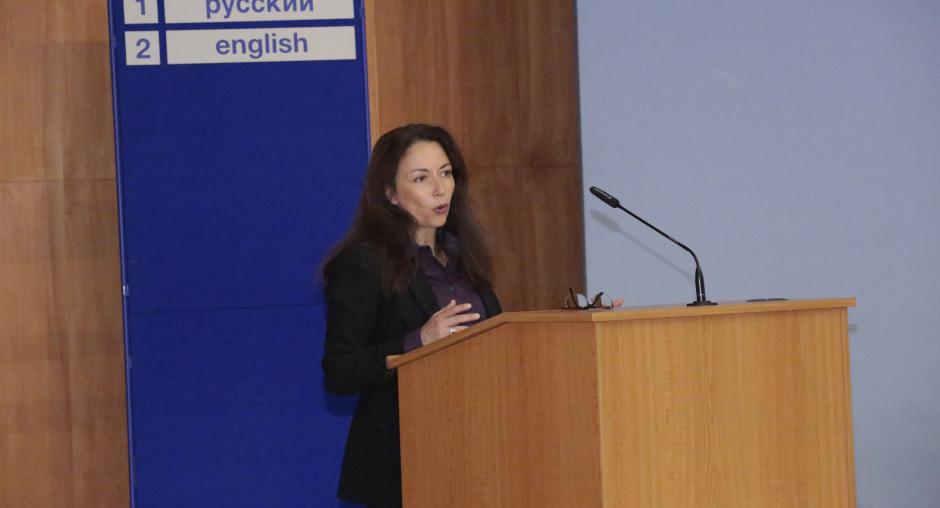OSCE Special Representative calls on states to prevent human trafficking through ethical sourcing in supply chains

BERLIN, 7 September 2016 - A two-day high-level conference focusing on the prevention of human trafficking for labour exploitation in supply chains, organized by the OSCE Office of the Special Representative for Combating Trafficking in Human Beings in co-operation with the German OSCE Chairmanship, opened today in Berlin.
Over 180 policy-makers from OSCE participating States and Partners for Co-operation, as well as representatives from international organizations, the private sector, civil society, trade unions and academia are participating.
“At a time when, as the United Kingdom Ethical Trading Initiative reports, 71 per cent of global companies believe there is a likelihood of modern slavery occurring in their supply chains, it is our turn to act decisively,” said Madina Jarbussynova, the OSCE Special Representative and Co-ordinator for Combating Trafficking in Human Beings. “We must put policies into practice to ensure that taxes from citizens do not support human trafficking but prevent the tragedy of our citizens being exploited.”
The conference provides a chance to discuss and collect existing good policy measures in the OSCE area, as well as lessons learned and outstanding gaps in safeguarding ethical sourcing of goods and services procured by governments.
“To prevent the inhuman and criminal practice of human trafficking, we need a multi-level and multi-actor approach,” said Gernot Erler, Special Representative of the German OSCE Chairmanship. “Bringing different actors together and mobilizing their full potential to facilitate solutions has always been a strong feature of the OSCE`s work.” Erler thanked Jarbussynova for her dedicated work and called on governments, civil society and the business community to work together and prove that increased economic connectivity and respect for the rights of human beings must strictly belong together.
Yasmin Fahimi, State Secretary in the German Federal Ministry of Labour and Social Affairs, noted that promotion of decent work in sustainable supply chains is at the top of Germany’s agenda. “We must stop the spiral towards the cheapest prices at the cost of rights of workers and children.” Fahimi added that Germany will vigorously continue its international efforts in this regard, such as during the G20 Presidency in 2017.
The Berlin Conference will focus on the importance of implementing relevant international commitments, including the UN Sustainable Development Goals, and will serve as a platform for co-operation between government officials, the private sector, NGOs and academia.
Civil society will present initiatives such as worker-driven social responsibility models. Representatives from global brands such as Ikea, Tesco and Unilever will share their experience in complying with recently-adopted legislation on the prevention of human trafficking in supply chains in some of the OSCE’s participating States, and will discuss how governments can improve labour standards, market efficiency and competitiveness, by creating a level playing field for companies with complex global supply chains.
The event is part of an ongoing effort by the OSCE to promote the prevention of this form of modern slavery and of the OSCE project on prevention of trafficking in human beings in supply chains through government practices and measures, funded by the governments of Austria, Germany, the Netherlands and Switzerland and implemented with the valuable support of the Office of the Co-ordinator of OSCE Economic and Environmental Activities.
